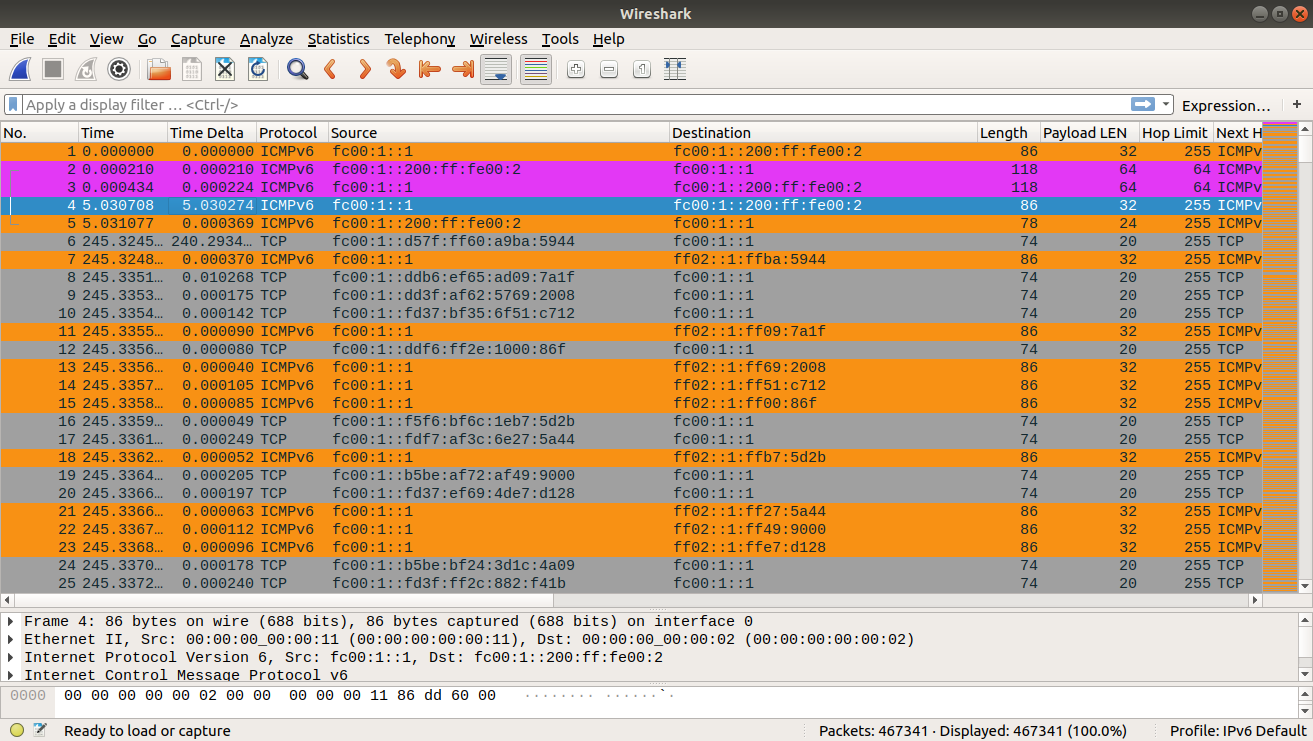Check out these additional IPv6 Resources: |
| Our IPv6 overview course at Udemy |
| Our IPv6 Custom Profiles for Wireshark |
| Our IPv6 classes at the Online School |
As folks are becoming more focused on IPv6, developing a solid security strategy with regards to IPv6 networking is essential.
That said, one way to gather information or take down an IPv6 network is to use a SYN FLOOD attack.
Wikipedia deines a SYN FLOOD attack as follows:
A SYN flood is a form of denial-of-service attack in which an attacker sends a succession of SYN requests to a target's system in an attempt to consume enough server resources to make the system unresponsive to legitimate traffic.
This is a well known attack in IPv4 networks and carries forward into IPv6.
Using Wireshark, here is a brief view of what it looks like:

Looking at the attack, it is fascinating what is happening.
Clearly the attack has determined the network to be FC00:1::/64 which is actually correct.
Then we see TCP SYN’s being sent out followed by ICMPv6 Neighbor Solicitations to the SNMA address (look at packets 6 and 7 for example). This causes the Firewall to not shut doen the port as these “may” be legitimate packets.
The randomness of the IID seems to indicate that there was no desire to “scan” or find any devices. Instead, what is happening is an attempt to fill up/poison the IPv6 Neighbor Tables (these are IPv6’s replacement for ARP tables in the IPv4 world).
Very dangerous.
You will note we are using our IPv6 default profile – it can be found in our profile repository here.
And, if you would like a copy of this .pcap-ng file for your own self study, you can download it here.
I hope you find this article and its content helpful. Comments are welcomed below. If you would like to see more articles like this, please support us by clicking the patron link where you will receive free bonus access to courses and more, or simply buying us a cup of coffee!, and all comments are welcome!
